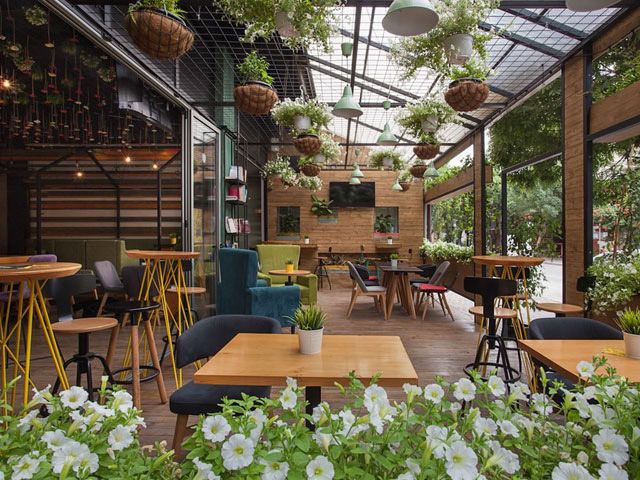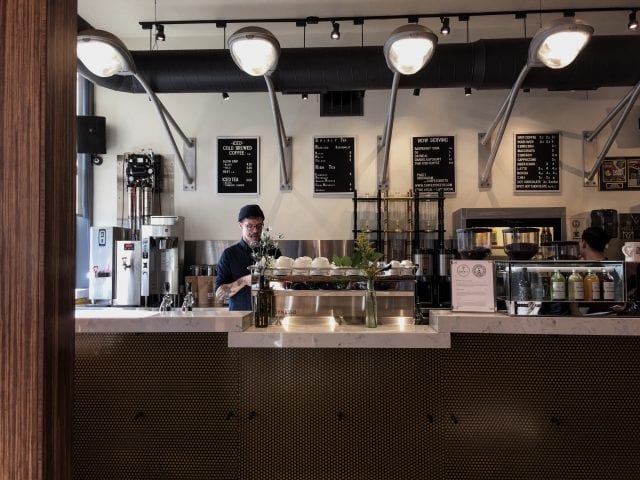In an era where environmental consciousness is at the forefront of consumer minds, coffee shops are adapting to sustainable practices to satiate not just caffeine cravings but also the planet’s needs. “Sustainable Sips” is not merely a catchphrase; it’s a commitment to eco-friendly practices that are revolutionizing the coffee industry. Let’s delve into the depths of these practices and understand how coffee shops are making a positive impact on the environment, one sip at a time.
1. Ethical Sourcing of Beans
The journey towards sustainable sipping begins with the beans. Coffee shops embracing eco-friendliness prioritize ethically sourced coffee beans. This involves establishing direct relationships with coffee farmers, ensuring fair wages, and supporting environmentally responsible farming practices. By doing so, these coffee shops contribute to the preservation of biodiversity and the overall well-being of coffee-producing communities.
2. Eco-Friendly Packaging
The war against single-use plastics has reached the doors of coffee shops. Sustainable sipping involves the use of eco-friendly packaging alternatives. From compostable cups to biodegradable lids, coffee shops are making conscious choices to reduce their environmental footprint. Some establishments even encourage customers to bring their reusable cups, offering incentives and discounts as a reward for their commitment to sustainability.
3. Energy-Efficient Brewing Methods
Behind every invigorating cup of coffee is a brewing process that can either contribute to or mitigate environmental impact. Coffee shops are increasingly adopting energy-efficient brewing methods, such as utilizing energy-saving espresso machines and embracing solar-powered technologies. These initiatives not only reduce the carbon footprint but also showcase the industry’s dedication to embracing innovative solutions for a greener tomorrow.
4. Waste Reduction and Recycling Programs
The quest for sustainable sips goes hand-in-hand with waste reduction efforts. Coffee shops are implementing comprehensive recycling programs, ensuring that waste is sorted and disposed of responsibly. Some establishments go the extra mile by repurposing coffee grounds into fertilizers or collaborating with local artists to transform coffee-related waste into art installations. These initiatives not only minimize environmental impact but also foster a sense of community engagement.
5. Community Education and Engagement
Beyond the confines of the coffee shop, sustainable sipping initiatives extend to community education and engagement. Coffee shops are becoming hubs for environmental awareness, hosting workshops, and seminars on sustainable practices. From educating customers on the importance of ethical sourcing to providing insights into waste reduction techniques, these establishments aim to create informed and conscientious consumers.

6. Water Conservation Practices
Coffee brewing is a water-intensive process, and sustainable coffee shops are taking steps to minimize water wastage. From investing in water-efficient equipment to implementing water recycling systems, these establishments are actively contributing to the global effort to conserve this precious resource. By prioritizing water sustainability, coffee shops ensure that every sip is not just flavorful but also responsibly crafted. Check out Goodness Coffee House to discover useful and practical tips about transformative coffee shop improvements.
Conclusion: Brewing a Greener Future
In conclusion, the era of “Sustainable Sips” is upon us, and coffee shops are leading the charge towards a greener future. By embracing ethical sourcing, eco-friendly packaging, energy-efficient brewing methods, waste reduction programs, community education, and water conservation practices, these establishments are proving that coffee culture and environmental stewardship can go hand in hand.
As consumers, our choices matter. By supporting coffee shops that prioritize sustainable practices, we contribute to a more environmentally conscious world. So, the next time you enjoy your favorite brew, remember that each sip can be a small yet significant step towards a more sustainable and eco-friendly future.





